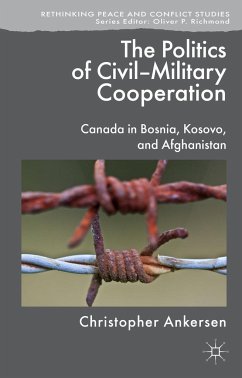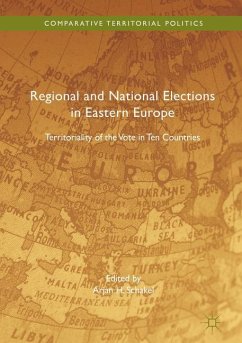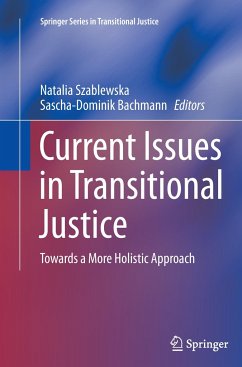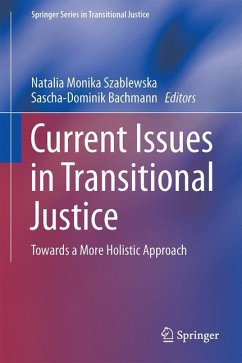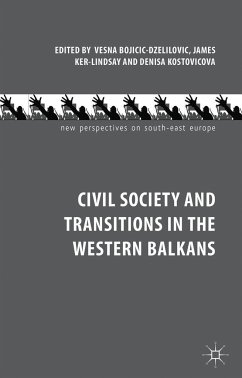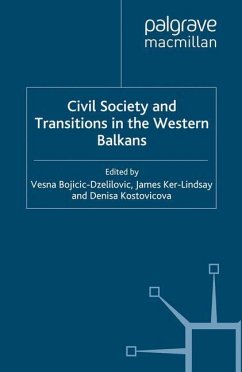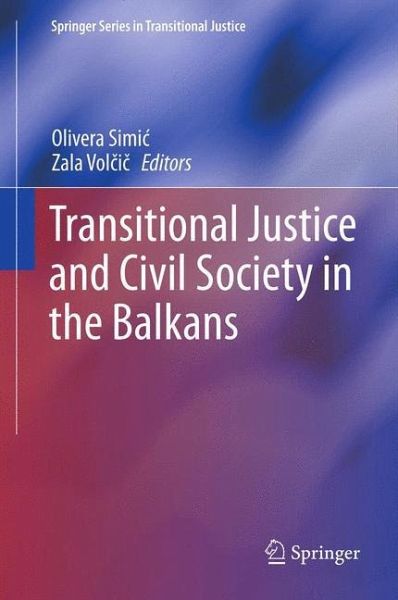
Transitional Justice and Civil Society in the Balkans
Versandkostenfrei!
Versandfertig in 6-10 Tagen
76,99 €
inkl. MwSt.

PAYBACK Punkte
38 °P sammeln!
Transitional Justice and Civil Society in the Balkans covers civil society engagements with transitional justice processes in the Balkans. The Balkans are a region marked by the post-communist and post-conflict transitional turmoil through which its countries are going through.This volume is intended to provide a comprehensive introduction to research in transitional justice in this part of the world, mostly written by local scholars. Transitional justice is ever-growing field which responds to dilemmas over how successor regimes should deal with past human rights abuses of their authoritarian...
Transitional Justice and Civil Society in the Balkans covers civil society engagements with transitional justice processes in the Balkans. The Balkans are a region marked by the post-communist and post-conflict transitional turmoil through which its countries are going through.
This volume is intended to provide a comprehensive introduction to research in transitional justice in this part of the world, mostly written by local scholars. Transitional justice is ever-growing field which responds to dilemmas over how successor regimes should deal with past human rights abuses of their authoritarian predecessors. The editors and author emphasize the relatively unexplored and under-researched role of civil society groups and social movements, such as local women's groups, the role of art and community media and other grass-roots transitional justice mechanisms and initiatives. Through specific case-studies, the unique contribution of this volume is not only that it covers a part of the world that is not adequately represented in transitional justice field, but also that the volume is the first project originally researched and written by experts and scholars from the region or in collaboration with international scholars.
This volume is intended to provide a comprehensive introduction to research in transitional justice in this part of the world, mostly written by local scholars. Transitional justice is ever-growing field which responds to dilemmas over how successor regimes should deal with past human rights abuses of their authoritarian predecessors. The editors and author emphasize the relatively unexplored and under-researched role of civil society groups and social movements, such as local women's groups, the role of art and community media and other grass-roots transitional justice mechanisms and initiatives. Through specific case-studies, the unique contribution of this volume is not only that it covers a part of the world that is not adequately represented in transitional justice field, but also that the volume is the first project originally researched and written by experts and scholars from the region or in collaboration with international scholars.








